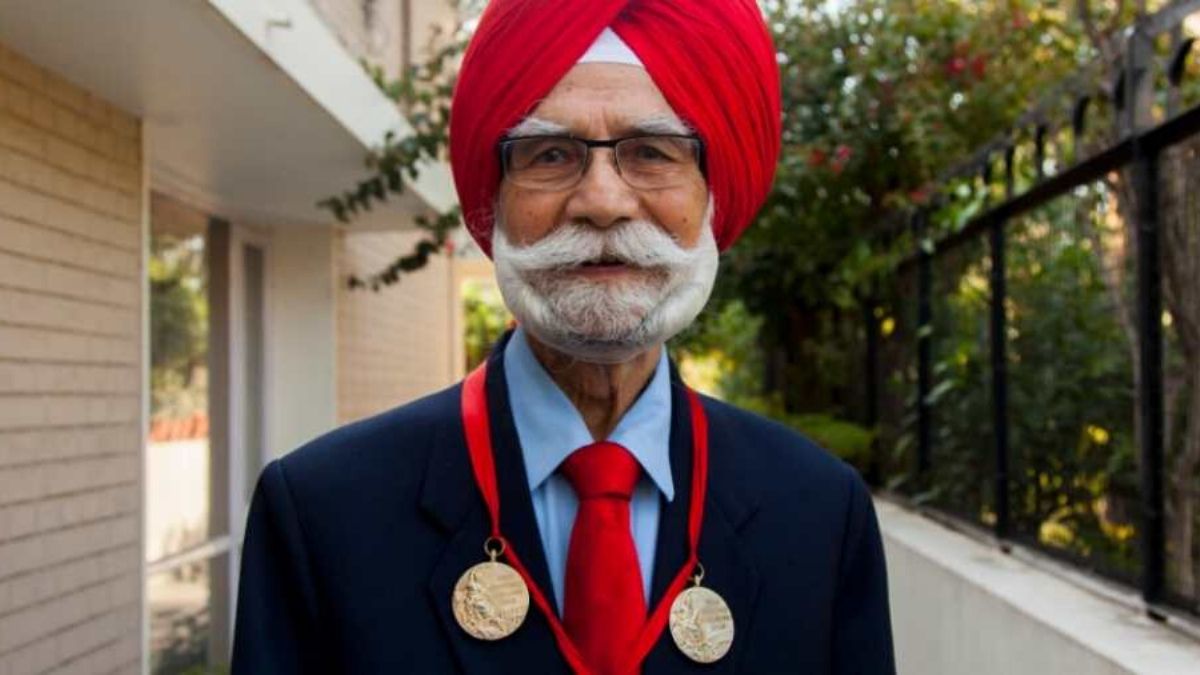


Balbir Singh Senior, a hockey legend, breathed his last on Monday morning in Mohali. During the era when hockey was played on grass, he won three Olympic golds — 1948, 1952 and 1956 — and was India’s most-decorated athlete ever. His talismanic goal-scoring abilities and prodigious assisting brought him in the league of hockey giants like Dhyan Chand.
Singh scored two goals in a 4-0 win against Argentina in 1948 London Olympics, five goals against Afghanistan in the 1956 Melbourne Olympics, and five goals in a 6-1 victory against the Netherlands in the final of the 1952 Helsinki Olympics. Balbir Singh, whose father was a freedom fighter during the British era, had a difficult commencement into hockey. Growing up in Moga, he loathed the police who had jailed his father multiple times.
Nevertheless, the same police force would shape his hockey career. In 1945, the then Punjab Inspector General of Police, John Bennettt, was so awestruck by his skills that he commanded his officers to recruit him. To evade the recruitment, the young hockey player fled to Delhi and instead joined the Central Public Works Department team. However, days later Balbir Singh was arrested and brought back to Jalandhar, where Bennett told him that if he didn’t play, he’d be jailed.
The following year, in 1946, he led Punjab to their first national championship title in 14 years. Balbir Singh was the manager of the Indian team that won the 1975 World Cup. His great sporting abilities along with his humane and secular outlook won him several friends and admirers. Brigadier H.J.S. Chimni, a member of the same team said, “Players from different religion played in the team. On reaching Kuala Lumpur city in Malaysia, he took us to a temple, mosque, gurdwara and church and prayed for the Indian team to become world champion.” Despite being slightly superstitious, he was loved by his colleagues.
“To encourage us all, he introduced us to a woman in the team hotel who had predicted to our team to become a World Champion even before the World Cup started. She said that the figure of three is lucky for the team this time,” Chimni said. Balbir Singh was a fitness freak. Chimni recalled, “Sometimes he made the entire team run on the sand, sometimes to create an atmosphere of World Cup-like in the stadium, he used to bring a huge crowd of university students. He gave good practice on how to get more into his game amidst huge crowd.”
Ashok Dewan, who was the goalkeeper of the World Cup-winning team, said, “It was because of him that I and Aslam Sher Khan played against Malaysia in the semi-finals. He then gave us an opportunity in the final as well. Balbir Sir never made us feel like being a manager but we felt like working with him as if he were our colleague.” Ashok, who is self-quarantining in the wake of Covid-19, feels disheartened because he “could not attend the funeral” of the hockey legend. Balbir Singh was equally emotional.
Ashok Dhyan Chand, who scored the winning goal in the 1975 World Cup final, remembered, “When our team lost to Pakistan in the semi-finals of the World Cup in 1971, Balbir ji sobbed like a child. At that time, we were afraid that he might get a heart attack.”